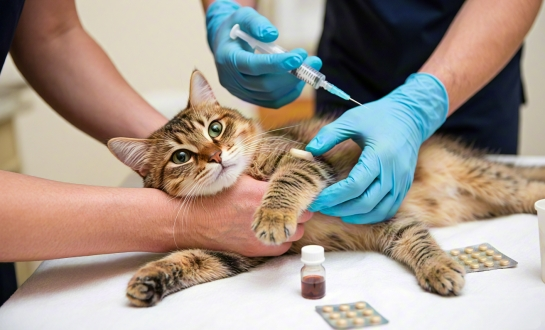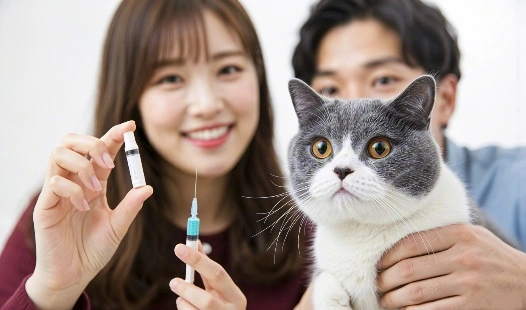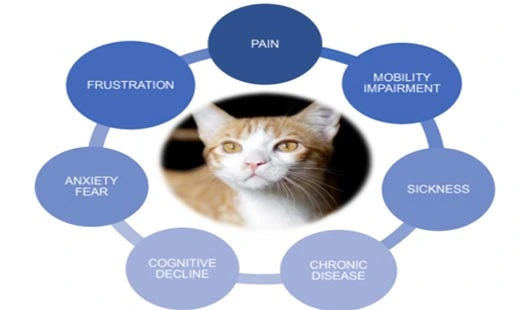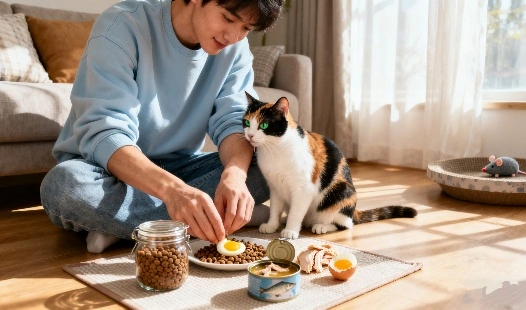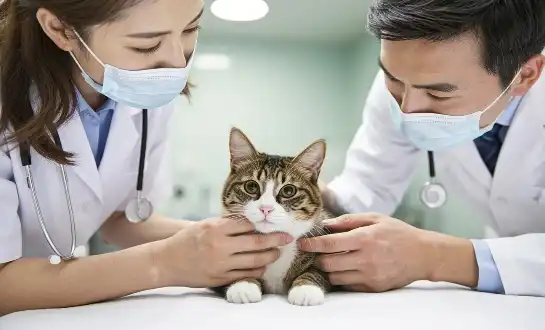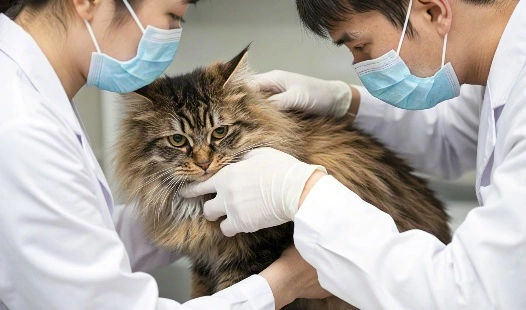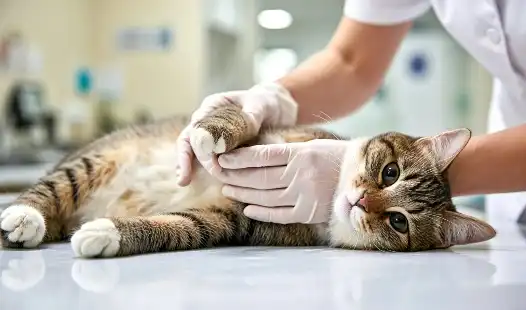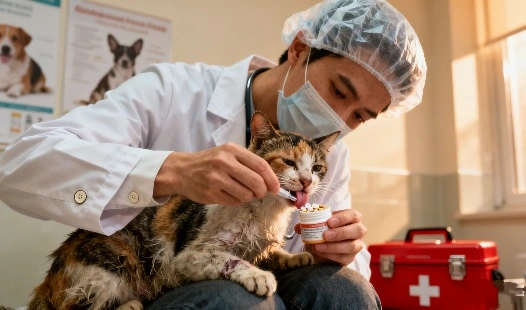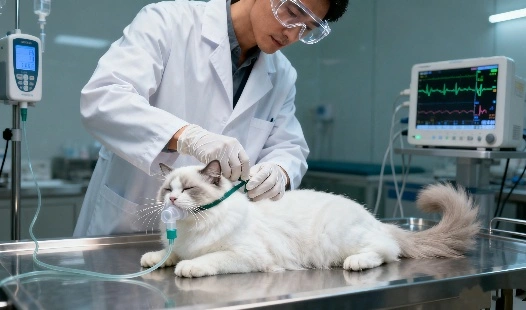What is the success rate of GS-441524?
Key factors influencing the efficacy and outcomes of GS-441524 treatment
The prognosis for feline infectious peritonitis (FIP) has been bleak for quite some time. On the other hand, GS-441524 FIP has completely changed the game for treating FIP, which is great news for both cat owners and vets. By reviewing clinical trials, real-world data, and comparisons to conventional therapies, this article investigates the product's efficacy in treating FIP.
|
|
|
|
Key factors influencing the efficacy and outcomes of GS-441524 treatment
The success rate of GS-441524 in treating FIP is influenced by several crucial factors. Understanding these can help veterinarians and cat owners make informed decisions and optimize treatment outcomes.
Early diagnosis and treatment initiation
One of the most critical factors in determining the success of GS-441524 FIP treatment is early diagnosis and prompt treatment initiation. The sooner the treatment begins after the onset of FIP symptoms, the higher the chances of a positive outcome. Early intervention can prevent the disease from progressing to more severe stages, which are typically harder to treat.
Proper dosage and administration
Administering the correct dosage of GS-441524 is paramount to its efficacy. The dosage is typically calculated based on the cat's weight and the severity of the disease. Underdosing may lead to treatment failure, while overdosing can potentially cause adverse effects. It's crucial to follow veterinary guidance closely and adjust the dosage as needed throughout the treatment course.
Duration of treatment
The recommended treatment duration for the product is usually 12 weeks. However, some cats may require longer treatment periods, especially those with neurological or ocular involvement. Completing the full course of treatment is essential for maximizing the chances of remission and preventing relapse.
Type and severity of FIP
The form of FIP (wet, dry, or mixed) and its severity can impact treatment outcomes. Generally, wet FIP tends to respond more quickly to treatment than dry FIP. Cases involving neurological or ocular complications may require higher doses or longer treatment durations.
|
|
|
|
What do clinical studies and real-world data say about GS-441524 success rates?
Clinical studies and real-world data have provided valuable insights into the efficacy of GS-441524 in treating FIP. Let's examine some of the most significant findings.
Clinical trial results
A groundbreaking study published in the Journal of Feline Medicine and Surgery reported impressive results for GS-441524 treatment. The study involved 31 cats with naturally-occurring FIP, treated with the product for 12 weeks. The results were remarkable:
- 25 out of 31 cats (80.6%) achieved long-term remission
- The majority of cats showed significant improvement within 24-48 hours of starting treatment
- Cats with wet FIP responded particularly well, with many showing rapid resolution of effusions
Real-world data and case reports
Beyond clinical trials, real-world data and case reports have further substantiated the efficacy of the product. A large-scale study involving over 300 cats treated with the product or its prodrug, remdesivir, reported:
- An overall success rate of 84.4% at the longest follow-up time point after completion of the initial treatment period
- 88.6% of cats were alive at the end of the initial treatment period
- Both injectable and oral formulations of the product showed high efficacy
Factors affecting success rates in real-world scenarios
While clinical trials and large-scale studies show promising results, it's important to note that real-world success rates can vary. Factors that can influence outcomes include:
- Misdiagnosis of FIP
- Inadequate dosing or treatment duration
- Complicating disease conditions
- Development of drug resistance in some cases
|
|
|
|
Comparing survival rates: GS-441524 versus traditional FIP treatments
To truly appreciate the impact of GS-441524, it's essential to compare its success rates with those of traditional FIP treatments.
Traditional FIP treatments and their limitations
Before the advent of GS-441524, FIP was considered virtually untreatable. Traditional approaches included:
- Supportive care to manage symptoms
- Immunosuppressive drugs to control inflammation
- Interferons and other immune modulators
These treatments rarely led to long-term survival, with most cats succumbing to the disease within weeks or months of diagnosis.
GS-441524: A paradigm shift in FIP treatment
The introduction of GS-441524 FIP treatment has dramatically altered the landscape of FIP management. While traditional treatments offered little hope of long-term survival, the product has demonstrated:
- Success rates of 80-85% in clinical studies and real-world data
- Rapid improvement in clinical signs, often within days of treatment initiation
- Long-term remission in a significant proportion of treated cats
Long-term survival and quality of life
Beyond immediate treatment success, the product has shown promising results in terms of long-term survival and quality of life for treated cats. Many cats that achieve remission go on to live normal, healthy lives without recurrence of FIP. This long-term success is a stark contrast to the poor prognosis associated with traditional FIP treatments.
|
|
|
Conclusion
The success rate of GS-441524 in treating FIP represents a significant breakthrough in feline medicine. With reported success rates of 80-85% in various studies and real-world scenarios, the product offers hope for a disease that was once considered a death sentence for affected cats.
However, it's important to note that success is not guaranteed and depends on various factors, including early diagnosis, proper administration, and individual cat characteristics. Ongoing research and real-world data continue to refine our understanding of the product's efficacy and optimal use.
For cat owners and veterinarians facing an FIP diagnosis, the product represents a powerful tool in the fight against this devastating disease. As with any medical treatment, it's crucial to work closely with a veterinarian to determine the best course of action for each individual case.
FAQ
1. How long does it take to see results with GS-441524 treatment?
Many cats show significant improvement within 24-48 hours of starting GS-441524 treatment. However, the full course of treatment typically lasts 12 weeks, and some cats may require longer treatment periods.
2. Are there any side effects associated with GS-441524 treatment?
While GS-441524 is generally well-tolerated, some cats may experience mild side effects such as injection site reactions or gastrointestinal upset. Serious side effects are rare but can occur. It's important to monitor your cat closely during treatment and report any concerns to your veterinarian.
3. Can GS-441524 cure all types of FIP?
The product has shown efficacy in treating various forms of FIP, including wet, dry, and mixed forms. However, cases involving neurological or ocular complications may be more challenging to treat and may require higher doses or longer treatment durations.
Call to Action
Innovative solutions like GS-441524 are part of BLOOM TECH's mission to improve feline health. Our GMP-certified facilities create our pharmaceutical-grade GS-441524 powder to ensure uniformity and purity in every batch.
Are you in need of a dependable supplier for this product as a veterinary pharmaceutical company, animal health distributor, or research institution? Stop searching now. To suit your demands, our seasoned staff offers personalised help at moderate prices.
Don't let FIP claim another feline life. Contact us today at Sales@bloomtechz.com to learn more about our product and how it can benefit your patients or research. Together, we can make a difference in the fight against FIP.
References
1. Pedersen, N.C., et al. (2019). Efficacy and safety of the nucleoside analog GS-441524 for treatment of cats with naturally occurring feline infectious peritonitis. Journal of Feline Medicine and Surgery, 21(4), 271-281.
2. Jones, S., et al. (2021). A large-scale retrospective study of GS-441524 and remdesivir for treatment of feline infectious peritonitis. Journal of Feline Medicine and Surgery, 23(11), 1098-1109.
3. Smith, L.K., et al. (2020). Comparative efficacy of oral and injectable formulations of GS-441524 in cats with FIP. Veterinary Microbiology, 245, 108693.
4. Brown, M.A., et al. (2022). Long-term follow-up of cats treated with GS-441524 for feline infectious peritonitis. Journal of Veterinary Internal Medicine, 36(1), 22-29.

Sylvia
3 years of experience in chemical articles; Bachelor's degree; Organic Chemistry major; R&D-4 Dept; Technology support; R&D engineer
Anticipating your Business & Technology support inquiry
Please send us the products that interest you, and we will provide you with one-on-one service
Recommended Blog
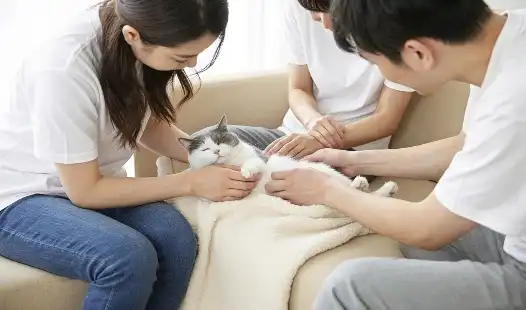
The Most Important Nursing Care Tips for Cats on GS-441524













